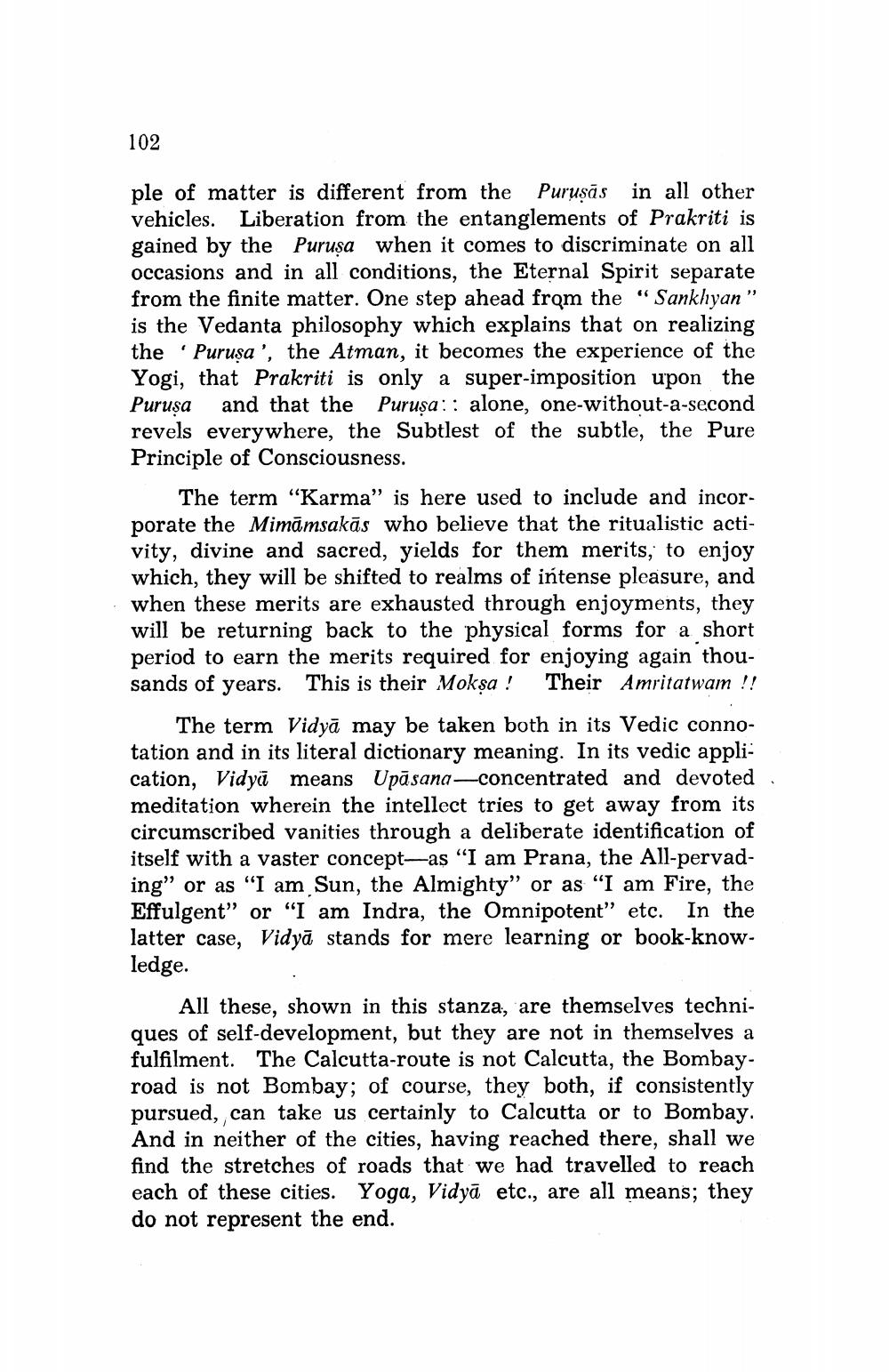________________
102
ple of matter is different from the Purusās in all other vehicles. Liberation from the entanglements of Prakriti is gained by the Purusa when it comes to discriminate on all occasions and in all conditions, the Eternal Spirit separate from the finite matter. One step ahead from the “Sankhyan" is the Vedanta philosophy which explains that on realizing the Purusa', the Atman, it becomes the experience of the Yogi, that Prakriti is only a super-imposition upon the Purusa and that the Purusa :: alone, one-without-a-second revels everywhere, the Subtlest of the subtle, the Pure Principle of Consciousness.
The term "Karma" is here used to include and incorporate the Mimāmsakās who believe that the ritualistic activity, divine and sacred, yields for them merits, to enjoy which, they will be shifted to realms of intense pleasure, and when these merits are exhausted through enjoyments, they will be returning back to the physical forms for a short period to earn the merits required for enjoying again thousands of years. This is their Moksa ! Their Amritatwam !!
The term Vidyā may be taken both in its Vedic connotation and in its literal dictionary meaning. In its vedic application, Vidya means Upasana concentrated and devoted meditation wherein the intellect tries to get away from its circumscribed vanities through a deliberate identification of itself with a vaster concept-as "I am Prana, the All-pervading” or as "I am Sun, the Almighty” or as “I am Fire, the Effulgent" or "I am Indra, the Omnipotent" etc. In the latter case, Vidyā stands for mere learning or book-knowledge.
All these, shown in this stanza, are themselves techniques of self-development, but they are not in themselves a fulfilment. The Calcutta-route is not Calcutta, the Bombayroad is not Bombay; of course, they both, if consistently pursued, can take us certainly to Calcutta or to Bombay. And in neither of the cities, having reached there, shall we find the stretches of roads that we had travelled to reach each of these cities. Yoga, Vidyā etc., are all means; they do not represent the end.




